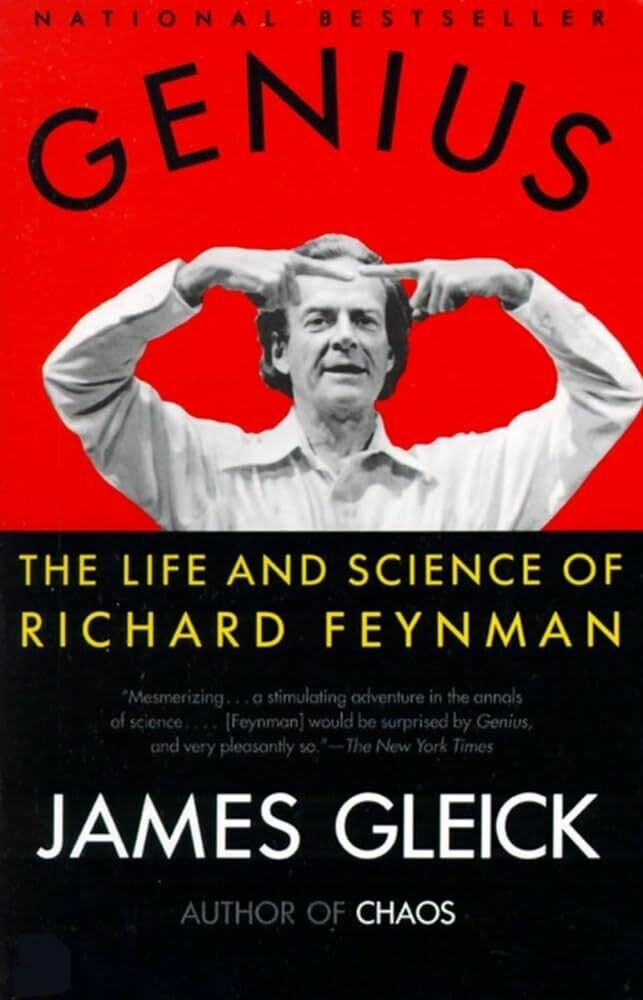OVERVIEW OF
QUANTUM COMPUTING


Ninnat Dangniam
Institute for Fundamental Study (IF), NU
20th NU Research and Invention Conference, 11 July 2024

Photo credit: Youtube/Cleo Abram
(They are real!)
\(6\times 7 = ?\)
There are procedures (e.g. "grade school multiplication") substantially faster than randomly guessing the solution
3490529510847650949147849619903898133417764638493387843990820577 \(\times\) 32769132993266709549961988190834461413177642967992942539798288533 = ?
What about
\(121 = ?\)



What about
114381625757888867669235779976146612010218296721242362562561842935706935245733897830597123563958705058989075147599290026879543541 = ?
RSA cryptosystem
Estimated time to crack 2048-digit RSA
Classical
10,000,000,000,000,000 CPU-years
or a million CPUs running for the age of the universe
Quantum
< 1 day*
* assuming no error
outline
- Early history
- What are (useful) quantum computers?
- What are they good at?
- What are they not so good at?
The Theoretical Beginning



1981
Why not use quantum computers to simulate physics?
1985
Quantum Turing machine, Deutsch-Josza algorithm (1992)
1994
Shor's factoring algorithm, quantum error correcting codes (1995)

1994
Implementation proposal using trapped ions

What are (useful) quantum computers?

0 or 1
Classical bit
Quantum bit
(qubit)
Quantum bits can have stronger-than-classical correlations (entanglement)

* Having stronger correlation doesn't directly translate to more computation power
AI, machine learning, biology/neuromorphic computing all fall into the classical category
Quantum Speedup Is About Scaling
When there is a "quantum speedup", it's not just 3x, 10x, or 1000x faster, but the bigger the problem, the faster

Shor's factoring algorithm and quantum simulation algorithms give an exponential speedup
These are examples of what quantum computers are really good at
So to beat classical computers, we need lots of qubits!
We Are Not at the Useful Stage Yet
The quality of the answer degrades quickly unless there are error corrections
Qubit
Virtual qubit
("logical" qubit)



Exciting time!
Encoding

Bruvstein et al., Nature 2024
what are quantum computers good at?
- Codebreaking
- Quantum simulation
- Simulations of biological/chemical processes e.g. drug design
- Predictions of exotic materials e.g. high-\(T_C\) superconductors

Reiher et al., PNAS 2017
\(10^5-10^6\) physical qubits with \(10^{-6}-10^{-9}\) error rates
The carbon footprint of a loaf of bread is about 590g (more than that of a 2-km commute), 40% of which is CO2 emitted during fertilizer production
Biological Nitrogen Fixation

Direct quantum simulation of nitrogenese
Haber process
- Energy intensive
- High Carbon footprint
300-500 \(^{\circ}\)C & 60-180 bar
what are quantum computers not so good at?
QCs usually can offer some advantage for NP-complete problems, but not as dramatic
- P problems = Easy to solve
- NP problems = Easy to verify a correct solution
- If we can quickly solve any NP-complete problem, then we can solve all NP problems quickly as well
Integer factorization
(NP-intermediate)
NP-complete*
- Traveling salesperson
- Optimization
- Logistics
what are quantum computers not so good at?
QCs usually can offer some advantage for NP-complete problems, but not as dramatic
Active area of research
- Quantum optimization?
- Quantum big data?
- Quantum machine learning?

Has partly been "dequantized"

Quantum Effort Worldwide

Quantum Effort in Thailand


Quantum computing


1981
Why not use quantum computers to simulate physics?
1992
Quantum computing was considered maverick research by some
The Theoretical Beginning



1981
Why not use quantum computers to simulate physics?
1985
Quantum Turing machine, Deutsch-Josza algorithm (1992)
1994
Shor's factoring algorithm, quantum error correcting codes (1995)

1994
Implementation proposal using trapped ions

13-year gap between the origin of the idea and first
useful application (still decades away)
Industrial use cases 2030+?

IF will be organizing a quantum-error-correction school next week
thank you!

for this presentation
High-Temperature Superconductors


Cuprate: \(T_C = \) 135K
Still can't predict what materials will exhibit superconductivity at high temperature
Overview of Quantum Computing (NRIC20)
By Ninnat Dangniam
Overview of Quantum Computing (NRIC20)
Naresuan Research and Innovation Conference (11 July 2024)
- 455





